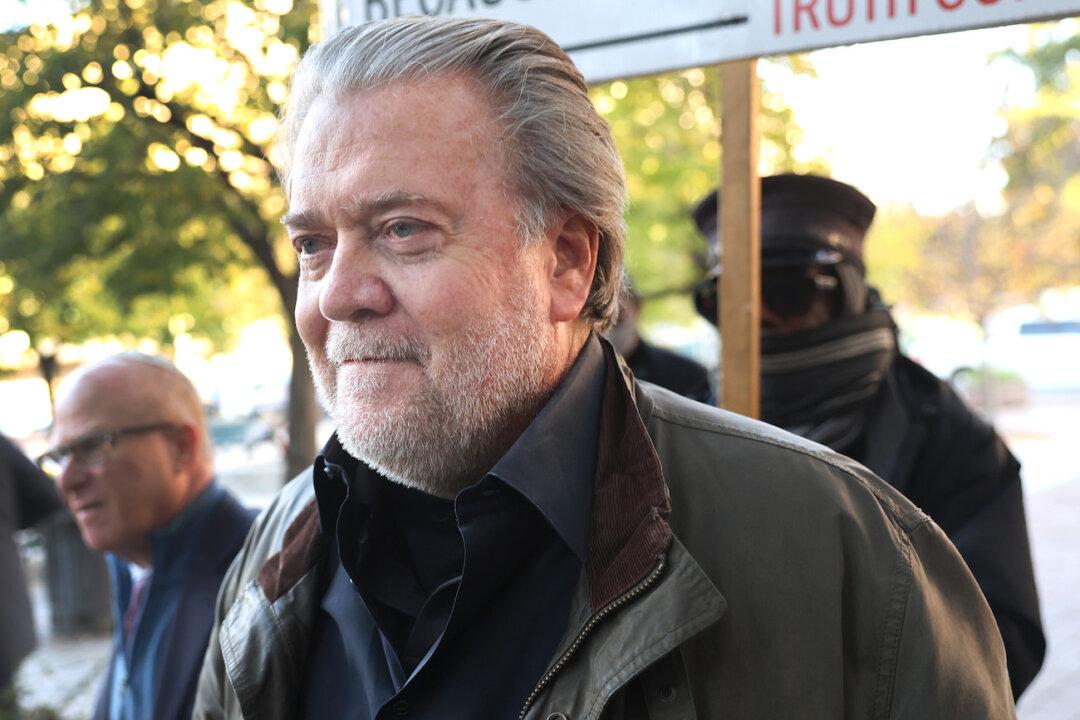Former White House chief strategist Steve Bannon has had his four-month prison sentence formally put on hold while he appeals the conviction.
Bannon, a onetime adviser to former President Donald Trump and a former Breitbart News executive, was sentenced to four months in prison by U.S. District Judge Carl Nichols on Oct. 21 on two misdemeanor counts of contempt of Congress, for having refused to answer questions from or provide documents to the House Jan. 6 Committee. Bannon was also ordered to pay a $6,500 fine.




